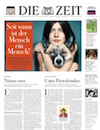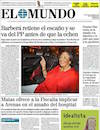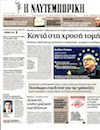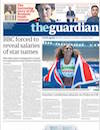While the press largely share his assessment and praise his clear-headedness, it believes the measures he has put forward are insufficient.
For Ulrich Ladurner, editorialist at Die Zeit, Juncker’s speech was “neither passionate, nor beautiful, nor sublime.” The President of the European Commission “tried to be equal to European citizens by appealing to everyone.” But above all he accepted the limits of his power:

During his speech, Juncker shrunk before his audience’s eyes to become what he really is: a politician dependent on the governments of EU member states. He did not even try to hide it. Juncker did not want to appear bigger than he is. It was not the president of a super-state at the podium. Nor a ‘fanatical proponent of nation states, but instead someone who knows just how serious the situation has become and is bitterly aware of his reduced powers, someone who knows his days are numbered. [....] His message was clear to see: Europe’s future won’t be decided in Brussels but in the capitals of European countries.
Receive the best of European journalism straight to your inbox every Thursday
Eric Bonse at Die Tageszeitung gave a similar story, writing that he did not think the speech “gave a new lease of life to Europe”:

Juncker made his statements according to the wishes of the heads of state and government who are meeting on Friday in Bratislava. He did not give a controversial speech, but, on the contrary, an exercise in Realpolitik to ensure the EU, with all its interior conflicts, does not implode.
In an unsigned editorial, the Madrid-based daily El Mundo judged Juncker’s state of the union speech to have had “ambiguous effects”, since, despite his detailed analysis of the problems facing the EU, –

it lacked achievable and concrete measures, because the EU has until now been powerless to tackle many of them. [...] Juncker devoted a large part of his speech to security problems, implying that the EU will need permanent funding and a shared military force. Something which today is far from achievable because it is fiscally untenable. [...] Juncker is right when he says security is the EU’s greatest challenge today, but we must not forget that we cannot turn our backs on refugees and that the solution does not lie in externalising the problem by using Turkey as a buffer state. It is only by setting out with democratic values that we can legitimately find solutions to the difficult challenges facing the EU.
“One year ago, the President of the European Commission, Jean-Claude Juncker, described the sad state of the Union when he gave his opening speech before the European Parliament, Twelve months later, Europe is in no better shape,*” writes Olivier Le Bussy. For La Libre Belgique editorialist,

it is, on the contrary, further entrenched in what might well be called an ‘existential crisis’. The divergences go right to the heart of Europe’s values and its essence – with extremely eurosceptic Poland and Hungary explicitly talking of a ‘cultural counter-revolution’ – and it is difficult to see how the informal summit that will take place on Friday in Bratislava, without the British, could give rise to anything other than a minimal consensus on the path to take. Instead Europe needs a vigorous movement to restart the European project. But, as they say, what doesn’t go forward goes back.
“*‘What will we say to our children? That we forgot the past?’ asked Juncker on Wednesday, commentating on those who call for the return of nationalism and of an ‘each-for-their-own’ mentality, Natasha Stasinou observes in Athens' Naftemporiki:

At their last few summits, the EU’s member states decided that current challenges required common measures and solutions – whether it was the refugee crisis, financial stability, the fight against tax evasion or that against terrorism. In practice, everything is going in the opposite direction. [...] The Union has little room for manoeuvre to take important decisions. National governments should keep in mind what Juncker highlighted: history will not remember your names, but it will remember your determination or your mistakes.
"'You aren’t half as important as you think you are.' That was the implicit message for Britain in the state of the European Union address by European commission president Jean-Claude Juncker", writes Joris Luyendijk on the Guardian. According to the columnist,

It was a welcome signal for European citizens and politicians exasperated by British indecision and outright incompetence post-referendum. But it was a message unlikely to even register with all those pundits and politicians in Britain still convinced that the EU needs the UK more than vice versa. […] Juncker wanted to address the concerns that actually exercise Europeans: refugees, terrorism, economic stagnation, a dysfunctional eurozone architecture and Russian expansionism. Add to that the real possibility of chaos in Turkey, of EU-phobe Marine Le Pen winning the French presidential election and of a Trump presidency blowing up Nato and it should be clear that Brexit is somewhere on page two or three of the EU priority list. In fact, the prospect of Brexit seems to have helped the EU at least in the short term, with a number of countries seeing an unexpected surge in support for the EU.
Was this article useful? If so we are delighted!
It is freely available because we believe that the right to free and independent information is essential for democracy. But this right is not guaranteed forever, and independence comes at a cost. We need your support in order to continue publishing independent, multilingual news for all Europeans.
Discover our subscription offers and their exclusive benefits and become a member of our community now!












